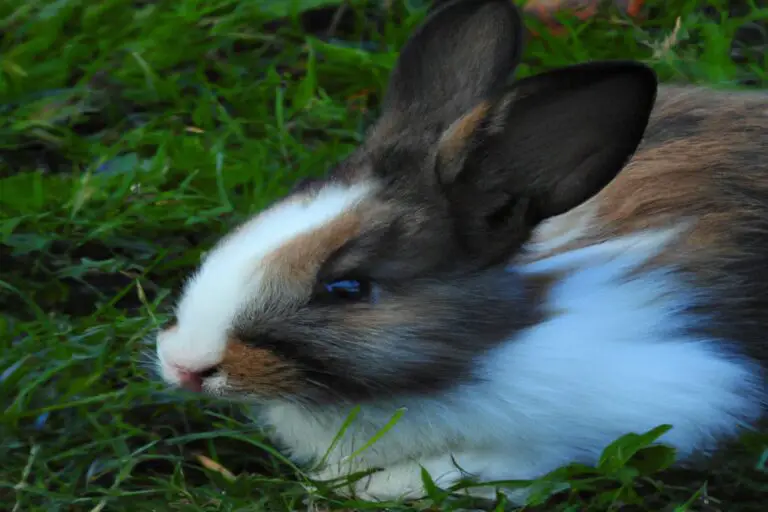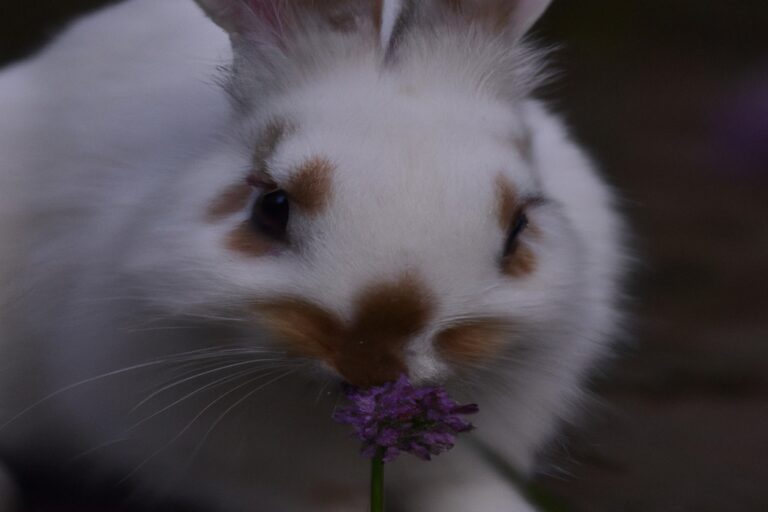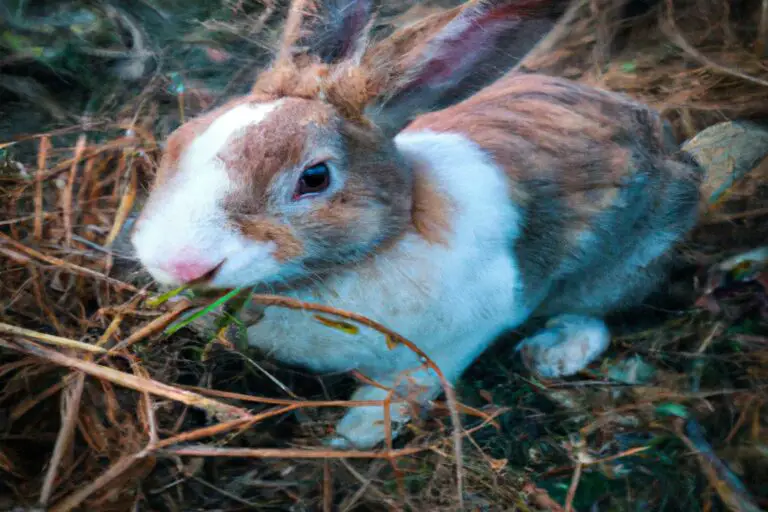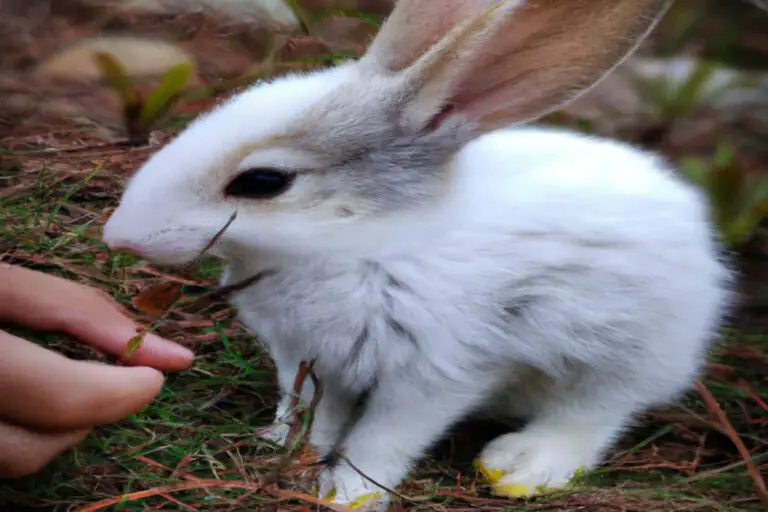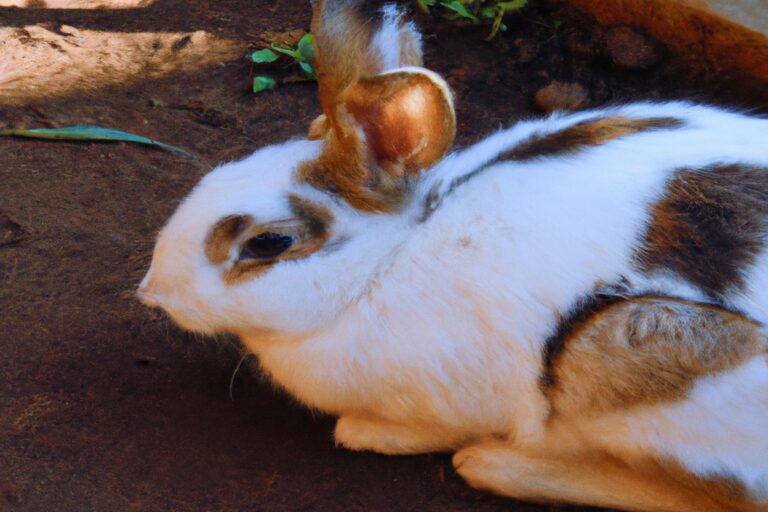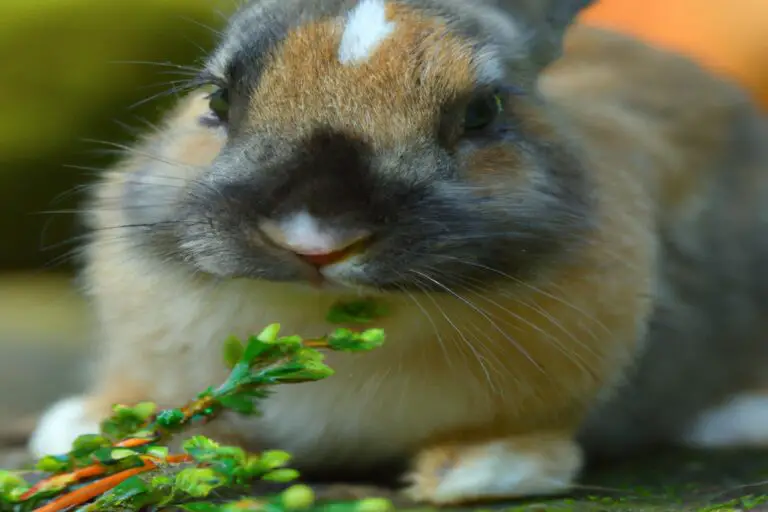Can Rabbits Have Sweet Peppers for a Healthy Snack?
Key Takeaways:
- Rabbits can safely eat sweet peppers in moderation.
- Sweet peppers provide a variety of nutrients for rabbits.
- Remove the seeds and stems before feeding sweet peppers to rabbits.
- Introduce sweet peppers gradually to monitor any allergic reactions.
Are you curious about what foods are safe for your fluffy, adorable rabbit?
Well, today we’re here to answer one delicious question: can rabbits have sweet peppers?
As an expert on rabbit nutrition and care, I’ll guide you through the ins and outs of including sweet peppers in your furry friend’s diet.
We’ll explore the nutritional value of sweet peppers, the potential health benefits they offer, as well as any risks and considerations to keep in mind.
Plus, we’ll even cover how to prepare these tasty treats for your bunny.
So, let’s dive in and discover if sweet peppers are a thumbs up or a no-no for your furry companion!
Can rabbits eat sweet peppers?
Yes, rabbits can eat sweet peppers in moderation as they provide some nutritional benefits and variety to their diet.
Understanding a rabbit’s diet
Understanding a rabbit’s diet is essential for their overall health.
Rabbits are herbivores and their diet should consist mainly of fresh hay, high-quality pellets, fresh vegetables, and a small amount of fruit.
Hay is important for their digestive system and dental health.
Pellets should be limited, as too much can lead to obesity.
Fresh vegetables like leafy greens provide important nutrients, while fruit should only be given as an occasional treat due to its high sugar content.
It’s important to introduce new foods gradually to avoid digestive upset.
Nutritional value of sweet peppers
Sweet peppers, also known as bell peppers, are packed with nutrients.
They are an excellent source of vitamin C, which is essential for a strong immune system and healthy skin.
Sweet peppers also contain vitamin A, which is important for maintaining good vision and promoting healthy cell growth.
Additionally, they are low in calories and high in fiber, making them a great choice for weight management and digestive health.
Lastly, sweet peppers are rich in antioxidants, which help protect the body against harmful free radicals.
Incorporating sweet peppers into your diet can provide a wide range of health benefits.
So go ahead and enjoy them in your meals or as a crunchy snack!
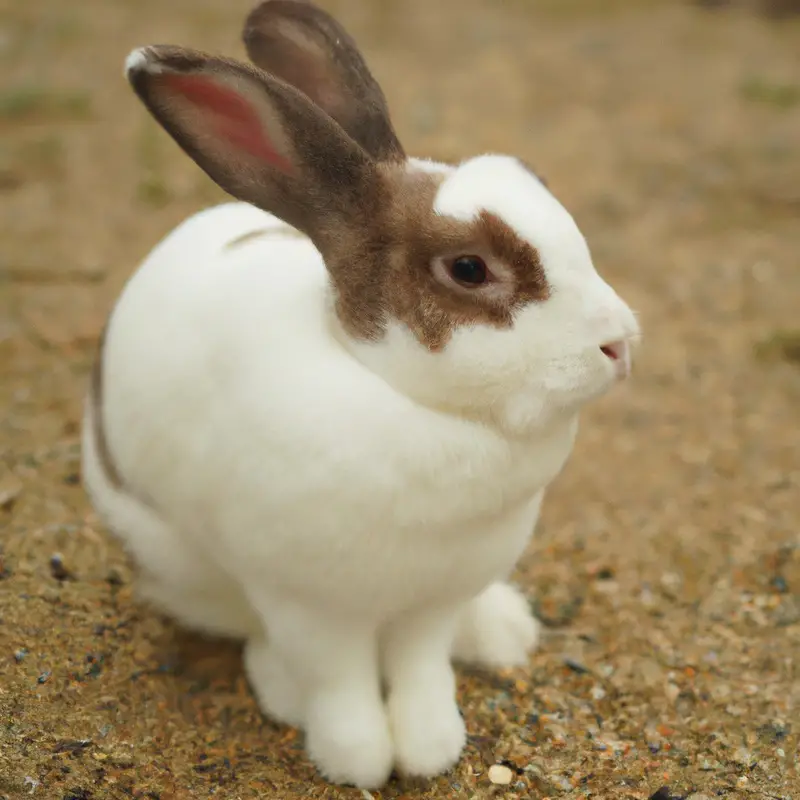
Health benefits of sweet peppers for rabbits
Sweet peppers offer several health benefits for rabbits, including a rich source of vitamins and minerals, antioxidant properties, and a high fiber content.
Vitamins and minerals in sweet peppers
Sweet peppers are packed with essential vitamins and minerals that can benefit rabbits.
They are a great source of vitamin C, which helps support their immune system and promotes healthy skin and coat.
Sweet peppers also contain vitamin A, which is important for maintaining good vision and reproductive health.
Additionally, they provide minerals such as potassium, which aids in maintaining proper hydration and muscle function.
Feeding your rabbit sweet peppers in moderation can contribute to their overall health and wellbeing.

Antioxidant properties
Antioxidants are compounds that help protect the body against damage from harmful molecules called free radicals. Sweet peppers are a great source of antioxidants, particularly vitamins C and A.
These antioxidants can help boost the immune system, reduce inflammation, and promote overall health in rabbits.
By including sweet peppers in their diet, rabbits can benefit from the antioxidant properties, supporting their well-being.
Fiber content
Fiber is an important component of a rabbit’s diet.
Sweet peppers are a good source of fiber, which aids in digestion and helps prevent gastrointestinal issues in rabbits.
Fiber also promotes healthy gut bacteria and can prevent obesity.
Including sweet peppers in a rabbit’s diet can help meet their fiber needs and keep their digestive system functioning properly.
Remember to introduce new foods gradually and in moderation, and always consult with a veterinarian for specific dietary recommendations for your rabbit.
Risks and considerations
When it comes to feeding rabbits sweet peppers, there are a few risks and considerations you should keep in mind.
Potential digestive issues
Potential digestive issues can arise when rabbits consume sweet peppers.
Rabbits have delicate digestive systems that are designed for a high-fiber diet.
Sweet peppers, on the other hand, are low in fiber and high in sugar content.
This can lead to digestive upset, such as diarrhea or bloating, if consumed in large quantities.
It’s best to offer sweet peppers sparingly as an occasional treat rather than a regular part of their diet.
Always monitor your rabbit’s health and consult a veterinarian if you have concerns about their digestive system.
Allergies or sensitivities
Allergies or sensitivities: Rabbits can have allergies or sensitivities to certain foods, including sweet peppers. Some rabbits may experience digestive issues or skin problems when consuming sweet peppers, due to their high sugar content.
It’s important to monitor your rabbit’s reaction to new foods and consult a veterinarian if you suspect any allergies.
Other safe vegetables for rabbits include leafy greens like spinach and herbs like parsley. Remember to introduce new foods gradually and in small amounts.
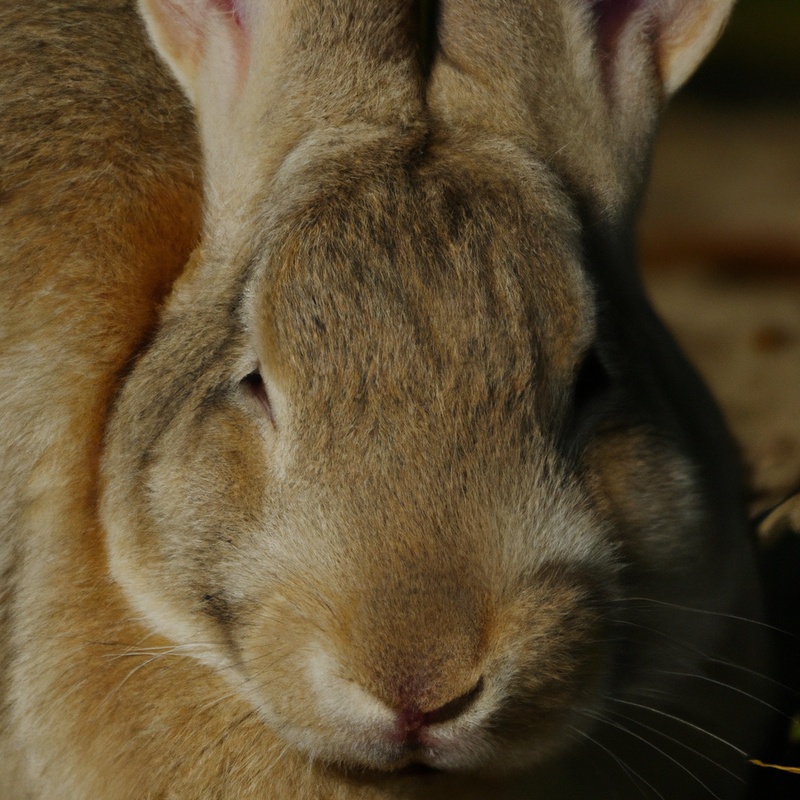
Quantity and moderation
Quantity and moderation are key when it comes to feeding your rabbit sweet peppers. While sweet peppers can be a healthy addition to your rabbit’s diet, it’s important to remember that moderation is key.
Offering a small amount of sweet peppers as an occasional treat can be a tasty and nutritious snack for your furry friend.
However, feeding them large quantities of sweet peppers on a regular basis can upset their digestive system and lead to health issues. Always consult with your veterinarian about the appropriate amount of sweet peppers to include in your rabbit’s diet.
Preparing sweet peppers for rabbits
To prepare sweet peppers for rabbits, start by selecting fresh and organic peppers. Then, wash and cut the peppers into small, bite-sized pieces before serving them to your furry friend.
Selecting fresh and organic peppers
When selecting peppers for your rabbits, it’s important to choose fresh and organic options.
Here are a few tips:
- Look for peppers that have vibrant colors and firm textures. Avoid any that are wrinkled or have soft spots.
- Check if the peppers are organic, as this ensures they are grown without harmful chemicals or pesticides.
- Opt for locally sourced peppers when possible, as they tend to be fresher and have a minimal carbon footprint.
- If you grow your own peppers, make sure to thoroughly wash them before feeding them to your rabbits.
Washing and cutting the peppers
To wash the peppers, simply rinse them under cool running water to remove any dirt or residue.
If desired, you can use a vegetable brush to gently scrub the surface.
When cutting the peppers, start by removing the stem and seeds.
Then, slice or dice them according to your preference.
It’s important to remove the seeds, as they can be difficult for rabbits to digest.
Remember to always wash your hands and cutting board before and after handling peppers to ensure food safety.
Serving methods for rabbits
When it comes to serving methods for rabbits, it’s important to provide fresh and clean food.
Here are some options:
- Offer sweet peppers in small, bite-sized pieces as a treat, but not as a main part of their diet.
- Rotate with other vegetables and greens to keep their diet varied.
- Wash all produce thoroughly to remove any pesticides or dirt.
- Avoid feeding them cooked or seasoned peppers, as the additives and spices can be harmful to their health.
- Monitor their intake to ensure they don’t develop any digestive issues.
Remember to consult with a veterinarian for specific dietary recommendations for your pet rabbit.
Frequently Asked Questions
Can rabbits eat other types of peppers?
Yes, rabbits can eat other types of peppers, but there are some things you should keep in mind. While bell peppers are safe and healthy for rabbits to consume, other varieties like chili peppers or jalapenos are not recommended due to their spiciness.
It’s best to stick to mild, non-spicy peppers and feed them in moderation as a treat.
Always introduce new foods gradually to your rabbit’s diet and monitor their digestion for any adverse reactions.
Can rabbits eat the seeds in sweet peppers?
Yes, rabbits can eat the seeds in sweet peppers. However, it’s important to note that the seeds should be given to them in moderation.
While the seeds are not toxic to rabbits, they can be difficult for them to digest in large quantities.
So, it’s best to offer a small amount as an occasional treat rather than making it a regular part of their diet. Always monitor your rabbit’s health and digestion when introducing new foods.
How often should sweet peppers be given to rabbits?
Rabbits can have sweet peppers as a treat, but it should be given in moderation.
Aim to offer sweet peppers to your rabbit a few times a week, as part of a varied diet.
Monitor their response and digestion after each serving.
It is important to remember that the main part of a rabbit’s diet should consist of hay, fresh vegetables, and high-quality rabbit pellets.
Sweet peppers should not replace these essential components.
As always, consult with a veterinarian for personalized advice on your rabbit’s specific dietary needs.
Can rabbits eat cooked sweet peppers?
Yes, rabbits can eat cooked sweet peppers. However, it’s important to feed them in moderation as an occasional treat.
Avoid adding any seasonings or oils while cooking the peppers, as these can be harmful to rabbits.
Always introduce new foods gradually and monitor your rabbit for any signs of digestive issues. Remember, a balanced diet consisting mainly of hay and fresh vegetables is best for our furry friends.
Final Verdict
Sweet peppers can be a beneficial addition to a rabbit’s diet. They are rich in vitamins and minerals, have antioxidant properties, and provide much-needed fiber.
However, it is important to consider the potential risks, such as digestive issues and allergies, and to moderate the quantity given to rabbits.
When preparing sweet peppers, choose fresh and organic options, wash and cut them appropriately, and explore different serving methods. Overall, incorporating sweet peppers into a rabbit’s diet can contribute to their overall health and well-being.


